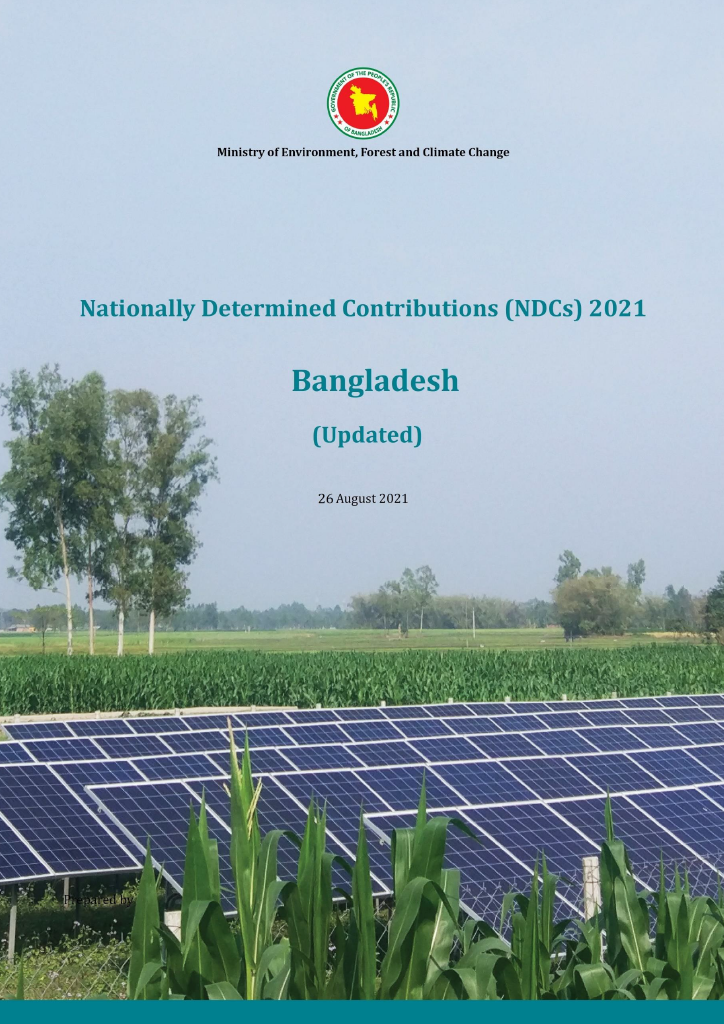Bangladesh’s Updated Nationally Determined Contributions (NDCs) aim for further mitigation actions that the country may take to tackle its growing emissions and play its role in global efforts.
The NDC calls for a number of mitigation actions that will help limit the country’s greenhouse gas (GHG) emissions.
These actions will play a key role in realizing the move to a low-carbon, climate-resilient economy and becoming a middle-income country whilst ensuring that it will not cross the average per capita emissions of the developing countries.
The updated NDC covers Energy, Industrial Processes and Product Use (IPPU), Agriculture, Forestry and other Land use (AFOLU), and Waste.
Emission Increases in the Energy Sector are significant, from 93 MtCO2e to 312.5 MtCO2e. As per NDC (2021), GHG emissions would be reduced by 27.56 Mt CO₂e (6.73 percent) below business-as-usual (BAU) by 2030 in the respective sectors (unconditional).
In the conditional scenario, GHG emissions would be reduced by 61.9 Mt CO₂e (15.12 percent) below BAU by 2030 in the respective sectors. The total estimated costs of the mitigation actions are 176 billion US$ over ten years (2021-2030).
The Updated Nationally Determined Contributions (NDCs) document was retrieved from the Ministry of Environment, Forests and Climate Change (MoEFCC). It was submitted to the United Nations Framework Convention on Climate Change (UNFCCC) on 21 August 2021.
Recent Updates:
In 2018, Bangladesh prepared its NDC Implementation Roadmap and Action Plan.
On 25 September 2015, Bangladesh submitted its Intended Nationally Determined Contributions (INDC).
Help SAR-Climate keep this document page accurate and updated by suggesting an edit or any corrections here.

